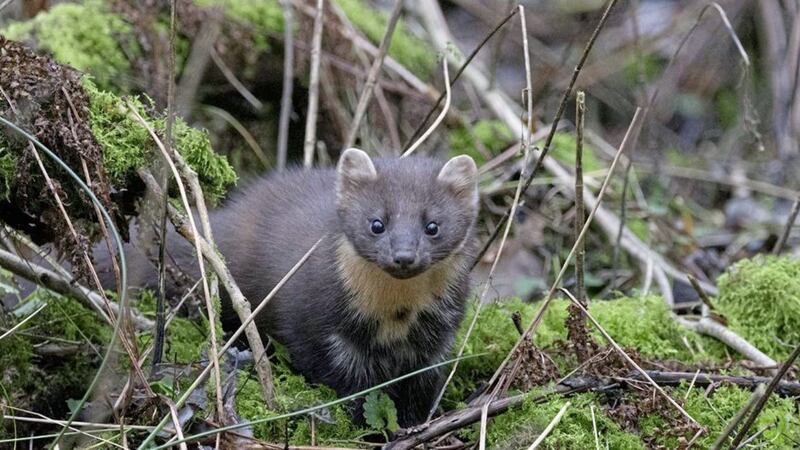PINE martens are more opportunistic and adaptable with their diet than previously thought, research from Queen's University Belfast has found.
Experts believe the findings could help them better understand the rare protected species and aid recovery of its population.
Surveys were conducted across Northern Ireland in a variety of habitats for the research.
It showed that despite pine martens' diets differing in each location, their eating habits remained the same – focusing on a few staple food items and supplemented with seasonally available treats.
The seasonal fluctuations in their diet were already documented, but the fact that every population across the range followed the same pattern was not.
Joshua Twining, a PhD student from the School of Biological Sciences who led the project, said the results were "quite fascinating".
"It's clear that pine martens are not only true opportunistic omnivores, but they're also highly adaptable, and unlike many other species, they can switch their diet depending on what's available around them at any given time," he said.
The pine marten is native to Ireland and is one of its rarest mammals, with population numbers at an estimated 3,043.
It was once a common sight across Ireland, but its numbers declined as a result of issues such as hunting and loss of habitat.
Nida Al-Fulaij, grants manager at wildlife charity People's Trust for Endangered Species (PTES), which funded the research, said: "Joshua's work is a hugely positive step forward in helping us to understand pine martens, which hopefully will aid their recovery long term too."








